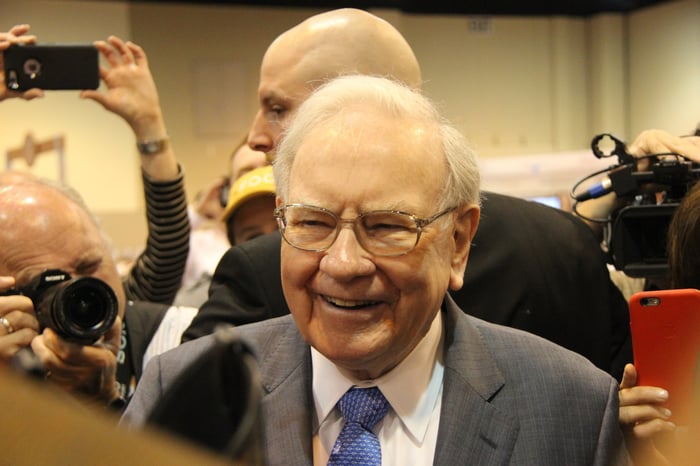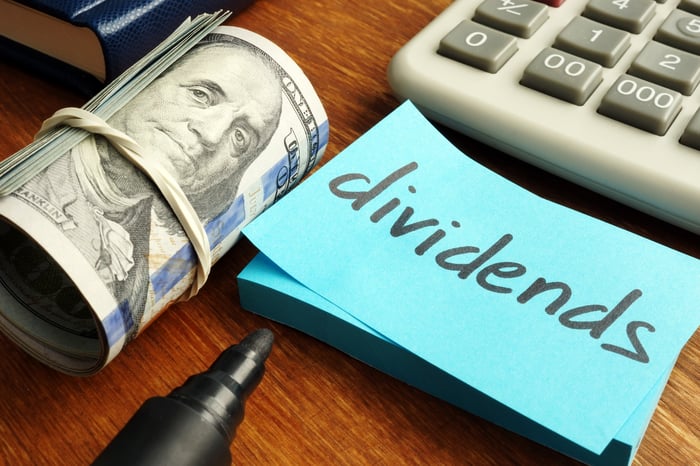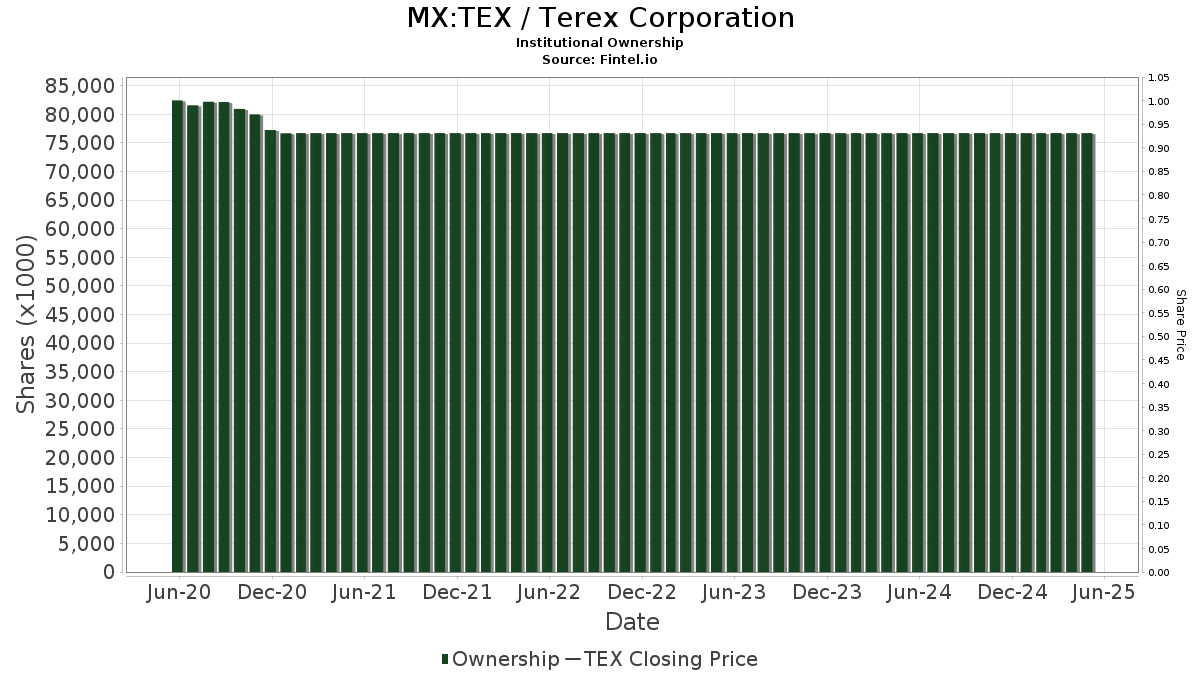Warren Buffett to Retire as Berkshire Hathaway CEO in 2025
On May 3, Warren Buffett confirmed he will step down from his position as CEO of Berkshire Hathaway at the end of 2025. Holding the role since 1965, his remarkable stock-picking talent has led to a compound annual return of 19.9% for investors.
For perspective, a $1,000 investment in Berkshire Stock back in 1965 would amount to about $44.7 million by the end of 2024. In contrast, that same investment in the S&P 500 index would have grown to merely $342,906.
Despite his departure as CEO, Buffett will continue to influence Berkshire’s strategic direction as chairman. His investment approach, characterized by a focus on long-term growth and stable companies, is expected to persist.
Buffett’s Investment Legacy and AI
Buffett has historically avoided fads like artificial intelligence (AI). Nevertheless, three significant holdings in Berkshire’s $286 billion portfolio—accounting for 32.9%—are now integrating AI into their operations.

Image source: The Motley Fool.
1. Amazon: 0.7% of Berkshire Hathaway’s Portfolio
Amazon (NASDAQ: AMZN) is the leading e-commerce platform, utilizing AI to enhance user experience. Its recommendation engine suggests products based on shopping behavior, while its Rufus virtual assistant helps customers make informed decisions.
Amazon Web Services (AWS) is pivotal to its AI strategy, having developed its own data center chips that are 40% cheaper than third parties like Nvidia. AWS also introduced a suite of large language models called Nova, which significantly reduce costs for developers.
The Amazon Q AI assistant aids businesses in data analysis and can accelerate coding tasks by up to 80%, streamlining software development. In the first quarter of 2025, Amazon reported $155.7 billion in total revenue, with AWS contributing $29.3 billion. AI revenue within AWS is now at a multibillion-dollar annual run rate, reflecting considerable growth potential.
Since purchasing Amazon Stock in 2019, it represents just 0.7% of Berkshire’s portfolio. Buffett has since acknowledged missing earlier opportunities within the tech sector but stands to gain from Amazon’s upcoming growth driven by AI.
2. Coca-Cola: 10% of Berkshire Hathaway’s Portfolio
Coca-Cola (NYSE: KO), the largest beverage company globally, leverages technology to maintain its competitive edge. In 2023, it appointed Pratik Thakar to lead its generative AI strategy, marking its commitment to this evolving field.
Since then, Coca-Cola has employed AI for content creation in marketing, even launching a new beverage, Coca-Cola Y3000, by forecasting future tastes based on consumer data inputs. Thakar noted that the reliance on generative AI will only increase.
Furthermore, in 2024, Coca-Cola inked a $1.1 billion, five-year agreement with Microsoft Azure to integrate AI into manufacturing, supply chains, and marketing. Buffett’s initial $1.3 billion investment in Coca-Cola between 1988 and 1994 now holds a value of approximately $28.6 billion. Berkshire has also reaped $776 million in dividends from this stake last year alone.
This investment exemplifies Buffett’s long-term strategy, emphasizing the benefits of compounding over time.
3. Apple: 22.2% of Berkshire Hathaway’s Portfolio
Between 2016 and 2023, Buffett and his team invested around $38 billion in Apple (NASDAQ: AAPL), leading to a valuation exceeding $170 billion as of early 2024. This concentration has raised risks, prompting Buffett to reduce his stake, yet Apple remains the largest holding, comprising 22.2% of Berkshire’s portfolio.
Apple has strategically prepared for the AI landscape by designing chips optimized for AI tasks, consequently enabling features within its operating systems. The Apple Intelligence suite includes AI tools for writing assistance and notification prioritization. Collaboration with OpenAI has further enhanced Siri’s capabilities.
With over 2.35 billion active Apple devices globally, the company is poised to be a significant distributor of AI technology to consumers. This positions Apple to potentially monetize AI solutions in innovative ways as the technology continues to advance.
As artificial intelligence (AI) technology advances, consumers may feel encouraged to upgrade their devices to capitalize on these innovations. This trend could present an opportunity for Berkshire Hathaway to reap substantial returns from its position in Apple as the tech giant’s AI strategy develops.
Understanding the Market Dynamics
Investors often speculate on whether they missed their chance to buy into successful stocks. However, market shifts can present new opportunities. An in-depth analysis of emerging trends can help identify companies poised for growth.
Investment Performance Insights
Consider some historical data illustrating the potential growth of strategic investments:
- Nvidia: Investing $1,000 at the time of our “Double Down” recommendation in 2009 would now be worth $351,127!
- Apple: A $1,000 investment based on our 2008 recommendation would have grown to $40,106!
- Netflix: If you invested $1,000 when we doubled down in 2004, it would have reached $642,582!
Currently, we are making “Double Down” alerts for three promising companies, available through our platform. This could be an ideal moment for investors to assess opportunities.
Stock Advisor returns as of May 12, 2025.
John Mackey, former CEO of Whole Foods Market, an Amazon subsidiary, is a member of The Motley Fool’s board of directors. Anthony Di Pizio has no position in any of the stocks mentioned. The Motley Fool holds positions in and recommends Amazon, Apple, Berkshire Hathaway, Microsoft, and Nvidia. The Motley Fool suggests considering options such as long January 2026 $395 calls on Microsoft and short January 2026 $405 calls on Microsoft. The Motley Fool adheres to a strict disclosure policy.
The views and opinions expressed herein are those of the author and do not necessarily reflect those of Nasdaq, Inc.




